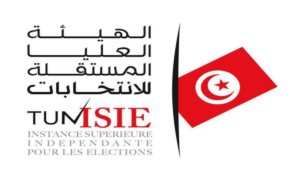InstaDeep, a Tunis and London-based enterprise AI startup that makes decision-making systems for solving actual-world problems, has raised $100 million in Series B financing led by Alpha Intelligence Capital and CDIB.
BioNTech (the company behind Pfizer’s COVID-19 vaccine), Chimera Abu Dhabi, Deutsche Bahn’s DB Digital Ventures, Google, G42 and Synergie partook in the round.
InstaDeep was established by Karim Beguir and Zohra Slim in 2014. The Tunisian startup, headquartered in London with offices in Paris, Tunis, Lagos, Dubai and Cape Town, employs advanced machine learning techniques to bring AI to applications within an enterprise environment.
Beguir, the chief executive officer, told TechCrunch, that the eight-year-old company’s AI and machine learning solves an array of challenges.
They can range from a large shipping company finding ways to efficiently transport thousands of containers to a railway station, with more than 30,000 kilometres of railway, trying to automate scheduling for 10,000 trains. Other examples are the design of advanced therapeutics with silicon and routing components on a printed circuit board.
These types of problems, though in different verticals, have similarities. InstaDeep uses reinforcement learning, a kind of machine learning that helps design optimization strategies and tackles them simultaneously.
In a statement, the company said it is currently working on a moonshot product to automate railway scheduling with Deutsche Bahn. The rail operator is the largest in Europe.
Two years ago, InstaDeep formed a multi-year strategic collaboration with BioNTech to launch a joint AI innovation lab. The lab’s mandate was to deploy the latest advances in AI and ML to develop novel immunotherapies.
One of its best efforts came in late November when it created an early warning system (EWS) for detecting high-risk SARS-CoV-2 variants. Per a report by FT, this EWS identified more than 90% of World Health Organization (WHO) designated variants on average two months ahead of time and detected Omicron three days before it was classified as a variant of concern by the WHO.
InstaDeep also collaborates with Google’s AI research divisions to create an early detection system for desert locust outbreaks in Africa; it has worked on AI initiatives and has published joint research with DeepMind and Google Research.
A common theme with these partnerships is that all three organizations are investors in InstaDeep’s new financing round.
“With them being our partners and customers, they’ve been able to see firsthand what InstaDeep platform and the team can achieve,” said Beguir. “So we see it as a significant milestone and also sort of a vote of confidence in our capabilities and products that they are investing having worked very closely with us on difficult problems for years.”
InstaDeep currently has over 170 employees. More than 130 are in AI research, engineering, ML and DevOps departments, while half of the team is based in its African offices: South Africa, Nigeria and Tunisia.
What's happening in Tunisia?
Subscribe to our Youtube channel for updates.











































